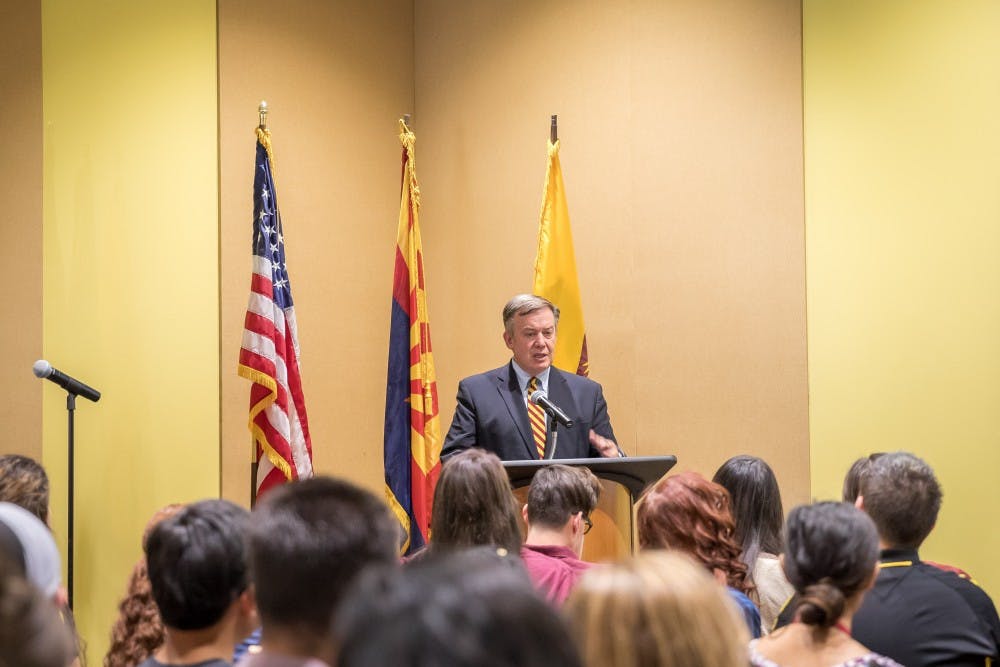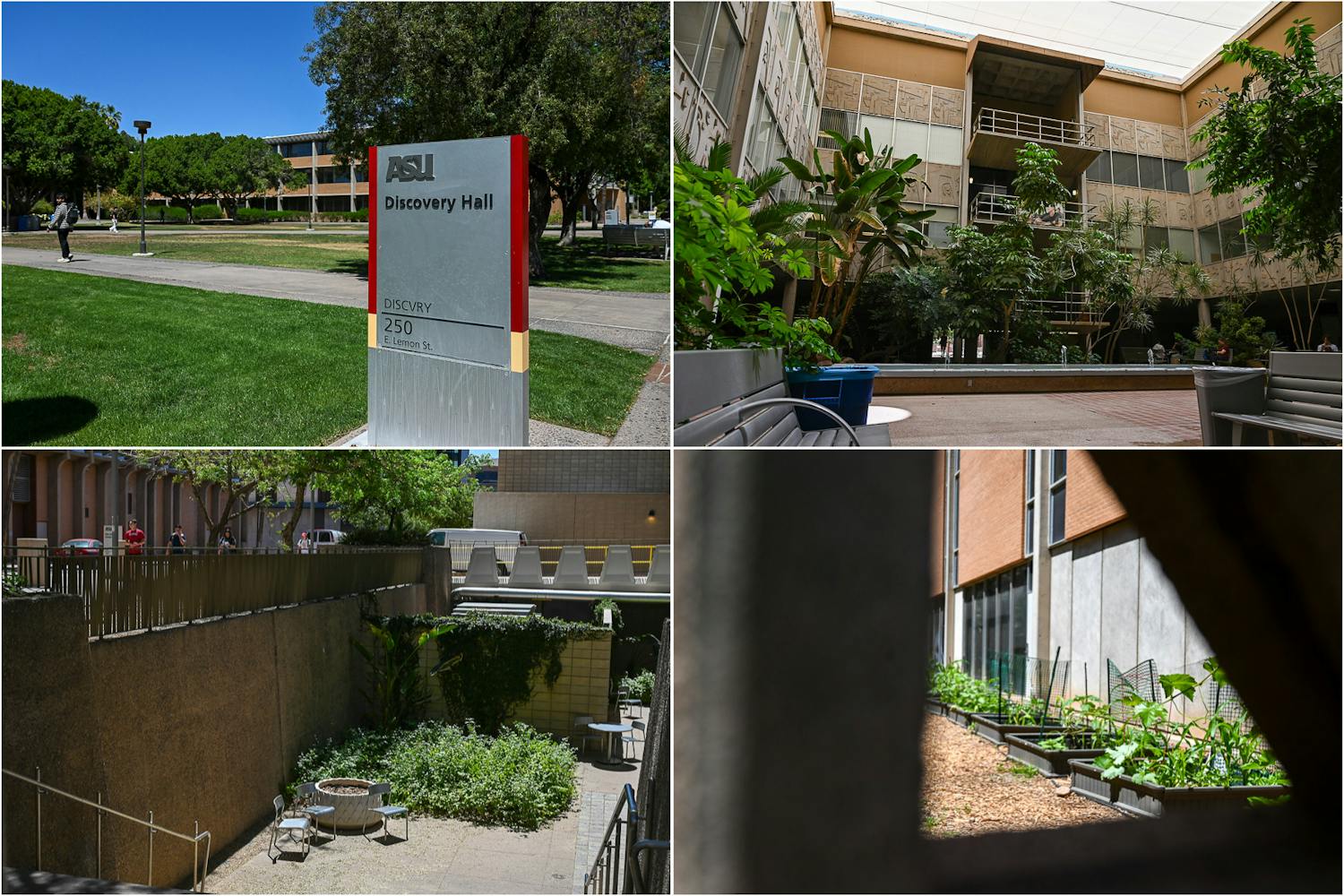Students from ASU's four major campuses had the opportunity Monday to ask University President Michael Crow about ASU's initiatives in campus services, tuition and national policy.
Crow hosted the hour-long event on the downtown Phoenix campus in conjunction with Undergraduate Student Government. It gave ASU students from across the Valley a platform to address questions and concerns to the president.
Of the several topics discussed, here are four key takeaways from the forum:
Title IX
U.S. Education Secretary Betsy DeVos earlier this month vowed to rescind Obama-era regulations how universities handle campus sexual cases. ASU currently has a system of Title IX coordinators and investigators that handles sexual assault cases that happen within the University.
At the forum, Crow said he had met and had two conversations with DeVos over the matter, but he did not clarify further.
"We've been working over the last couple years to improve students' awareness and student training relative to student conduct and student behavior in sexual encounters and sexual interactions," Crow said.
One of the ways in which the University seeks to combat sexual assault on campus and holds students accountable for their behavior is reinforcing the meaning of consent, Crow said.
"We have a very simple message we've been trying to communicate," he said. "There's only one word that has any meaning in any interaction between two consenting adults ... and that's the word 'yes' ... It's very simple. Our goal is to make sure that as many students as possible understand this."
He said regardless of changes in national policy, the University will remain committed in holding students morally and legally accountable for sexual misconduct and spreading awareness of the issue.
Childcare
George Brusch, a graduate teaching assistant in biology who attended the forum, said the University lacks childcare options for graduate students on the Tempe and Polytechnic campus, citing the recent closure of the Mary Lou Fulton Teachers College preschool.
Brusch said the lack of services has become a "roadblock" to his academic success.
"I feel that ASU needs to be more supportive of myself and other parents so that we can graduate in a timely manner," Brusch said. "(I'm) wondering if that's on your radar for the future."
Crow said providing childcare for students who are raising families while also participating in academics is a complicated matter that the University is trying to solve.
"The University has had some laboratory-branded schools built into various parts of these academic structures," Crow said. "For various reasons, the deans of the colleges that run those schools have found them to be more or less not ... critical to the future of academic programs of the school."
He said one of the reasons behind the preschool closure was because those who ran the school saw that many of the children that attended the preschool were from non-ASU affiliated families.
"What then becomes is a very difficult and complicated financial decision for an individual college," Crow said.
Crow said the University is trying to be more helpful to families of graduate students through making deals with childcare facilities and implementing vouchers.
Read more: 'We are done here:' Preschool closure made final following community meeting
DACA
Crow expanded on the five-step plan to protect DACA recipients at ASU he announced on Sept. 5.
"We have always said, 'focus on moving the student forward,' so we have done everything we can to support the DACA students, everything that we can to support these individual students who meet our qualifications," Crow said.
He said the University is committed to providing education, financial aid and resources to students who deserve to attend ASU in light of the nation's shifting immigration policy.
Tuition Lawsuit
Jakob Salazar, a sociology junior and senator for Undergraduate Student Government West, asked Crow about the recent lawsuit filed by Arizona Attorney General Mark Brnovich that called the Arizona Board of Regents' tuition-setting policies unconstitutional.
Read more: Arizona attorney general sues Board of Regents over 'unconstitutional' raises in tuition
"What is the opinion of the University on the ABOR lawsuit?" Salazar said. "Do you feel like the allegations are substantiated?"
Crow, who recently defended the University's tuition model both on Twitter and in an email sent to ASU staff and faculty, said the claims against the University included in the lawsuit were poorly-founded.
"The attorney general, who I think is doing his best to try to figure out how he can be helpful, wasn't able, through his staff, to spend a sufficient amount of time actually looking at the facts," Crow said.
Crow said the lawsuit contradicts many of ASU's metrics in relation to the Arizona constitution, which mandates that public university tuition in the state must be "as nearly free as possible."
Read more: ASU president responds to AG lawsuit, defends tuition model
Correction: A previous version of this article incorrectly referred to the Mary Lou Fulton Teachers College preschool as the Mary Lou Fulton College Teachers preschool. The article has been updated to reflect the changes.
Reach the reporter at angel.n.mendoza@asu.edu or follow @angelnikolas96 on Twitter.
Like The State Press on Facebook and follow @statepress on Twitter.




